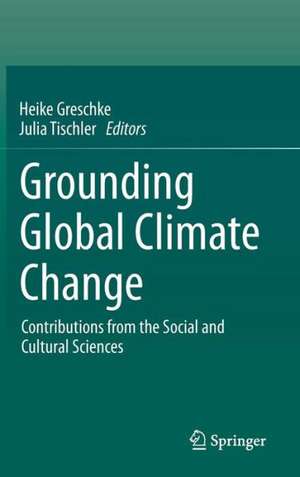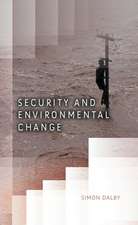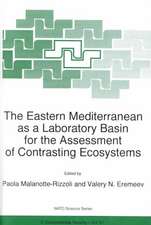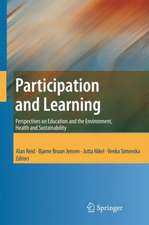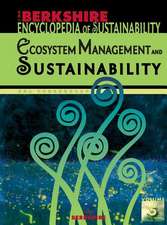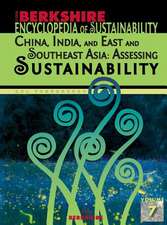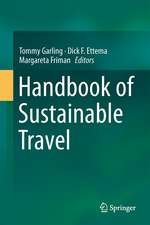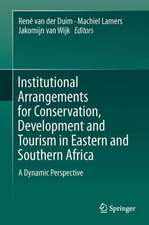Grounding Global Climate Change: Contributions from the Social and Cultural Sciences
Editat de Heike Greschke, Julia Tischleren Limba Engleză Hardback – 9 oct 2014
| Toate formatele și edițiile | Preț | Express |
|---|---|---|
| Paperback (1) | 635.31 lei 6-8 săpt. | |
| SPRINGER NETHERLANDS – 10 sep 2016 | 635.31 lei 6-8 săpt. | |
| Hardback (1) | 641.53 lei 6-8 săpt. | |
| SPRINGER NETHERLANDS – 9 oct 2014 | 641.53 lei 6-8 săpt. |
Preț: 641.53 lei
Preț vechi: 754.74 lei
-15% Nou
Puncte Express: 962
Preț estimativ în valută:
122.77€ • 133.31$ • 103.13£
122.77€ • 133.31$ • 103.13£
Carte tipărită la comandă
Livrare economică 22 aprilie-06 mai
Preluare comenzi: 021 569.72.76
Specificații
ISBN-13: 9789401793216
ISBN-10: 9401793212
Pagini: 181
Ilustrații: X, 181 p. 8 illus., 7 illus. in color.
Dimensiuni: 155 x 235 x 17 mm
Greutate: 0.45 kg
Ediția:2015
Editura: SPRINGER NETHERLANDS
Colecția Springer
Locul publicării:Dordrecht, Netherlands
ISBN-10: 9401793212
Pagini: 181
Ilustrații: X, 181 p. 8 illus., 7 illus. in color.
Dimensiuni: 155 x 235 x 17 mm
Greutate: 0.45 kg
Ediția:2015
Editura: SPRINGER NETHERLANDS
Colecția Springer
Locul publicării:Dordrecht, Netherlands
Public țintă
ResearchCuprins
Introduction: grounding global climate change.- Part I: Interdisciplinarity, climate research and the role of the social sciences.- Ecological novelty: towards an interdisciplinary understanding of ecological change in the Anthropocene.- Predicting the past? Integrating climate and culture during historical famines.- Anthropology in the Anthropocene: sustainable development, climate change and interdisciplinary research.- Part II: Searching for the social facts of global climate change: ethnographic perspectives.- Climate and mobility in the West African Sahel: conceptualising the local dimensions of the environment and migration nexus.- Animal belongings: human-non human interactions and climate change in the Canadian Subarctic.- Part III: Spinning global webs of local knowledges: collaborative and comparative ethnographies.- The social facts of climate change: an ethnographic approach.- Comparing climate worlds: theorising across ethnographic fields.- Towards imagining the big picture and the finer details: exploring global applications of a local and scientific knowledge exchange methodology.- Part IV: Concluding statement.- You ain’t seen nothing yet: a death-defying look at the future of the climate debate.
Recenzii
“Grounding Global Climate Change considers the roles that the disciplines of anthropology, sociology, history, and social geography can play in studying and shaping an understanding of climate change. … The strongly theoretical focus of the work will make it most valuable to those with strong backgrounds in the social sciences and an interest in interdisciplinary research. Summing Up: Recommended. Graduate students and above.” (J. L. Rhoades, Choice, Vol. 52 (9), May, 2015)
Textul de pe ultima copertă
This book traces the evolution of climate change research, which, long dominated by the natural sciences, now sees greater involvement with disciplines studying the socio-cultural implications of global warming. While most of social climate change research focuses on how people deal with environmental stresses and possible ways of adaptation, this volume foregrounds the question: What are the theoretical and methodological challenges of investigating climate change in different disciplines?
In their Introduction, the editors chart the changing role of the social and cultural sciences in climate change research, delineating different research strands that have emerged over the past few years. Part I of the book explores the prospects and challenges of interdisciplinarity in climate change research, connecting the points of view of a plant ecologist, a historian and a social anthropologist. Parts II and III provide ethnographic insights in a wide range of ‘climate cultures’ by exploring the social and cultural implications of global warming in particular contexts and communities, stretching from hunter communities in the High Arctic and the Canadian Subarctic over Dutch and Cape Verdian island communities and the metropolitan citizens of Tokyo to pastoralist families in the West African Sahel. Thereby, Parts II and III explore ethnography’s potential to produce locally-grounded knowledge about global phenomena, such as climate change.
Uniting the different approaches, all authors engage critically with the research subject of climate change itself, reflecting on their own practices of knowledge production and epistemological presuppositions.
In their Introduction, the editors chart the changing role of the social and cultural sciences in climate change research, delineating different research strands that have emerged over the past few years. Part I of the book explores the prospects and challenges of interdisciplinarity in climate change research, connecting the points of view of a plant ecologist, a historian and a social anthropologist. Parts II and III provide ethnographic insights in a wide range of ‘climate cultures’ by exploring the social and cultural implications of global warming in particular contexts and communities, stretching from hunter communities in the High Arctic and the Canadian Subarctic over Dutch and Cape Verdian island communities and the metropolitan citizens of Tokyo to pastoralist families in the West African Sahel. Thereby, Parts II and III explore ethnography’s potential to produce locally-grounded knowledge about global phenomena, such as climate change.
Uniting the different approaches, all authors engage critically with the research subject of climate change itself, reflecting on their own practices of knowledge production and epistemological presuppositions.
Caracteristici
Explores the growing influence of the social sciences alongside the natural sciences in climate change research Reflects on epistemological presuppositions and current practices of knowledge production Charts a path for social sciences and the humanities, surveying methodological and theoretical challenges and approaches Includes supplementary material: sn.pub/extras
